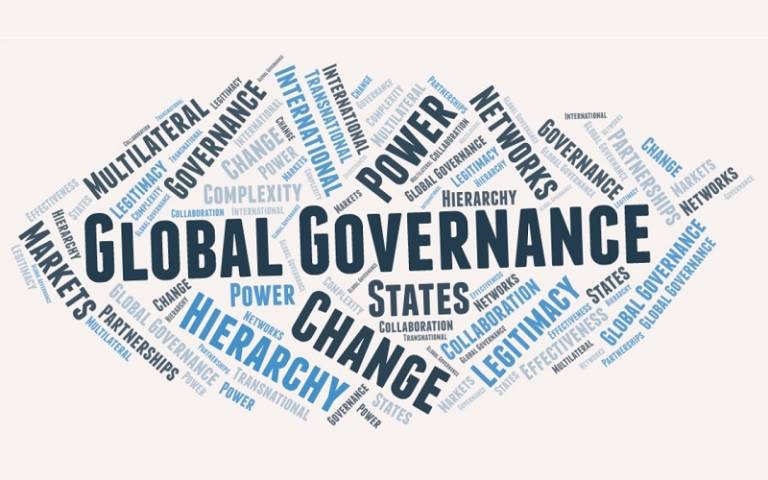Reconsidering Global Governance
22 February 2019
An interview with Michael Barnett, Professor of International Affairs and Political Science at George Washington University.

What does your own research currently focus on?
I work primarily on issues of humanitarianism and humanitarian governance but also broader issues of global justice.
Where do you see the most exciting debates happening in your field?
For me, the most interesting debates revolve around the tension between those who want to do good in the name of others and the ability of those others to assert what they think the ‘good’ actually is.
In your forthcoming book (Rethinking Global Governance, with Jon Pevehouse and Kal Raustiala) you suggest to look at global governance through the lens of three different modes of governance. Could you elaborate on that?
When you think about how we organize ourselves to solve common problems through cooperation there are, simplistically speaking, three ways to do that. The first is through hierarchy, which is basically top-down, state-led governance.
The second is through markets. At least in their economic textbook version, markets are decentralized and work through a ‘hidden hand’. People are free to follow their preferences without any state interference and, under ideal conditions, you achieve a win-win situation for everybody.
Finally, independent actors can work together through networks to solve a shared problem. For networks to function, it is essential that actors trust each other to keep agreements because cooperation is voluntary and not enforced from above.
However, we argue that even when cooperation is organized through markets or networks, hierarchy is still lurking in the background. Markets, for instance, do not work unless you have property rights and property rights do not work unless you have a state. You need courts to adjudicate if there is a dispute over a contract. And the same is true for networks. Both modes of governance do not work effectively without the ‘shadow of hierarchy’.
What is the value of thinking about global governance in terms of these modes? And can we say anything about their relative effectiveness?
I think it is important that we shake the idea that there is a ‘thing’ called global governance. For example, we cannot talk about security governance in the same way that we talk about climate governance. We need to appreciate the multifaceted way in which the world is governed and develop a better understanding of change in global governance.
When it comes to the question of effectiveness, there is no straightforward answer. Some would argue, for instance, that the key to addressing climate change is encouraging technological change through price mechanisms. Others put a lot of hope in new transnational networks. Again, others would say this is just rearranging the proverbial deck chairs of the Titanic and to save the world you really need strong action from the top.
What advice would you give to current students of global governance?
Approach the problems that are in front of you with an understanding that they are part of a bigger picture that also needs to be addressed.
This interview was conducted by Blair Fu, MSc Global Governance and Ethics, at a research workshop on ‘Beyond Multilateralism: The Future of Global Governance’ on 12 February 2019.

 Close
Close


